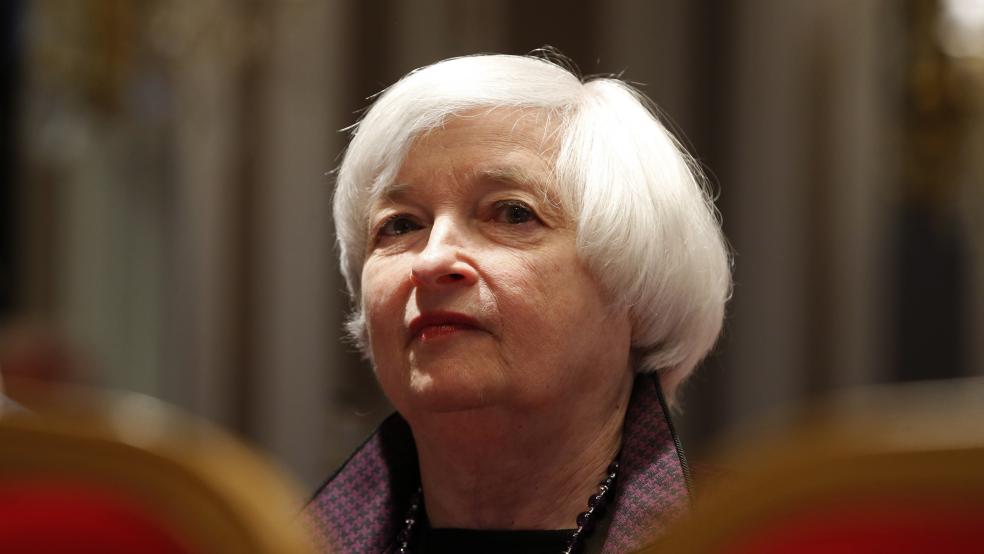Debates about the national debt and federal budget deficit dominated political and policy clashes throughout the Obama administration, but largely disappeared during President Trump’s time in the White House, even as the debt held by the public surged from $14.4 trillion on the day Trump was sworn in to more than $21.2 trillion now.
As President-elect Joe Biden prepares to take office and economic fears rise in conjunction with a surge in coronavirus cases, those debates are back — or, at the very least, GOP deficit warnings are. Following the passage of the more than $2 trillion coronavirus response package in March, Republicans have renewed their admonitions about the growing debt and resisted the larger additional stimulus Democrats have sought.
As The Washington Post’s David J. Lynch notes:
“Sen. Lindsey Graham (R-S.C.), slated to chair the Senate Budget Committee if Republicans maintain control of the upper chamber, told reporters after the Nov. 3 election that he wants to ‘finally begin to address the debt.’
Likewise, Sen. John Thune (S.D.), the No. 2 Senate Republican, said he expects to focus next year on curbing spending on entitlement programs, adding: ‘I think that’s kind of getting back to our DNA. ... I think spending, entitlement reform, growth and the economy are all things that we’re going to have to be focused on.’”
Progressive pushback: Some on the left, meanwhile, say that the GOP’s renewed deficit concerns are a hypocritical, if entirely predictable, way to resurrect the obstructionist playbook used during the Obama years, arguing that one-time deficit hawks were perfectly willing to drive up the debt via their 2017 tax cuts — and that past predictions that rising debt would lead to soaring interest rates and rampant inflation not only proved wrong but also hampered the recovery from the Great Recession.
President-elect Joe Biden, while he has in the past urged fiscal restraint, signaled this week via his choice of top advisers that his top economic priority will be to spend as needed to address the pandemic and revive the labor market and economy. For example, Janet Yellen, the former Federal Reserve chair who is Biden’s nominee for Treasury secretary, has warned in the past that U.S. debt is unsustainable — but has been a vocal proponent of additional coronavirus relief spending. “It’s an American tragedy, and it’s essential that we move with urgency,” she said Tuesday. “Inaction will produce a self-reinforcing downturn causing yet more devastation.”
As New York Times columnist Paul Krugman writes approvingly in his email newsletter, Biden’s picks “are, as a group, a bevy of deficit doves.” Mike Konczal of the liberal Roosevelt Institute (also approvingly) describes Biden’s choices as “All people who understand how important executing the recovery and getting to full employment will be. They’ll also have strong antibodies against cynical debt hysteria and conservative boilerplate.”
A shift in economic thought: “The Biden team’s push for government borrowing to fill the pandemic-sized hole in the economy also reflects a broader shift in some leading economists’ view of public debt,” the Post’s Lynch writes. “By cutting interest rates to near zero — and all but exhausting its conventional tool kit — the Federal Reserve has made such borrowing more attractive and left the nation’s fiscal authorities in Congress with a greater role in propping up the economy, they say.”
Economists have by and large warned that a failure by the federal government to provide additional coronavirus relief could result in a slower and more painful recovery. “You’re going to get the recovery starting in April, May, whether or not we get this package,” economist Adam Posen, head of the Peterson Institute for International Economics, told the Post. “Whether we get stimulus in December or January is about how much human suffering there is between now and then.”
Furman and Summers call for a “revolution” in fiscal policymaking: Democratic economists Jason Furman, who chaired the Council of Economic Advisers under President Obama, and Lawrence Summers, who was Treasury secretary under President Clinton and head of the National Economic Council under Obama, argue in a new paper released Tuesday that persistently low interest rates call for a “revolution” in thinking about the dangers of debt and deficits.
They argue that low rates have made debt more manageable and that past concerns about rising government debt “crowding out” private investment “have much less force” in the current environment. Fiscal policy should thus be oriented toward new goals: “As a new guidepost, we propose that fiscal policy focus on supporting economic growth while preventing real debt service from being projected to rise quickly or to rise above 2 percent of GDP over the forthcoming decade.”
They do note some longer-term worries, though: “While current projections do raise concerns over the fiscal situation beyond 2030 we note that that there is enormous uncertainty and that much of the issue would be addressed if necessary reforms internal to Social Security and Medicare were undertaken.”
And not everyone is convinced that fiscal policy can ignore the long-term dynamics of debt. In response to the Post piece Tuesday, the Committee for a Responsible Budget, which promotes fiscal discipline, tweeted, “We must borrow now to address the current crisis, but we will need to address the long-term national debt in a reasonable way after the economy recovers.”





